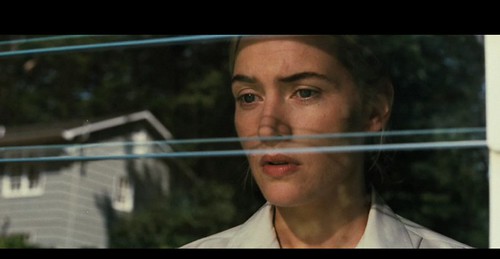Revolutionary Road
It could be about a war with a title like this and indeed it is about a war that exists behind closed doors – the combatants are a young husband and his wife, who supposedly have it all.
April and Frank live on Revolutionary Road, a quiet beautiful street in an affluent suburb filled with other young couples and they seemingly have it all – a comfortable home, gorgeous small children, money, and work. April is a stay at home Mum who plays house and Frank has a job with prospects of advancement up the ranks. But appearances can be deceptive and all is not what it seems.
The book of Ecclesiastes paints a similar picture of life: “meaningless! Meaningless! Utterly meaningless! Everything is meaningless.” (Ecc 1:2) The writer looks at different ways of trying to find meaning in life – seeking after wisdom, or the pleasures of life, or through work, or by gathering wealth, and concludes that none of these things will provide meaningful fulfilment.
It is Frank’s birthday and he tries to drown his unhappiness and emptiness by spending the day with a beautiful girl he has met through work and drinking himself insensible and then seducing her. He returns home to a wife who is making one final effort at restoring the magic that was in their relationship at the beginning.
During the day, April came across a photo of Frank from his youth in front of the Eiffel Tower in Paris. She remembers a conversation in which his face lit up with excitement as he described the wonder of Paris. She thinks if they return to Paris, he might rediscover this joy and exuberance. April convinces Frank that they can sell their home, he can leave his job and go and live in Paris – she can work, while he “finds himself” whatever that is. There is an element of a “chasing after the wind” in this move but they are determined to give it a go and the question is, will this tactic work? Will they be able to replace the fighting words and vicious attacks and salvage what is lost from their relationship?
April and Frank are a personification of what happens to many couples in our world today. They meet, fall in love and start their married life with a dream of what their life will become.
Before long, the monotony and reality of the patterns of life begin to wear them down. They become disappointed with what their life becomes, and that they have been replaced by shattered dreams. Most of the time, they are tired and worn down and are wondering what happened to their shared dreams. It has become empty and hopeless and they begin to take their unhappiness out on each other and their home is filled with fighting and verbal attacks. The love they had for each other is replaced by contempt and loathing.
Revolutionary Road is set in America in the 1950s and the book of Ecclesiastes was written centuries ago, but both are equally relevant to Sydney in 2009. An acquaintance went to see Revolutionary Road and left in floods of tears and said it described her home. How sad is that?
The film ends without hope and the people’s lives are still empty. Not one of the characters has figured out how to make the monotony and rhythms of life any different. God makes no appearance in this film and it is almost in His absence that He is patently there. It is only with God that hopelessness can be replaced with hope and emptiness replaced by a deep contentment.
If Revolutionary Road is a confronting film for Christian couples, there is a possibility of change and reconciliation. You don’t have to remain in the war zone; you can call a truce and seek peace. You can be the one to begin to treat the other differently. It won’t happen overnight but is possible to retreat, think and pray and ask that God will transform the relationship into one that is spirit-filled and brings delight to His name.
Tuesday, February 3, 2009
Revolutionary Road
Subscribe to:
Posts (Atom)
